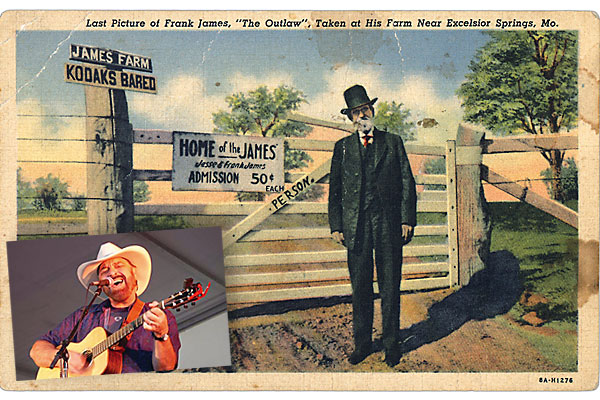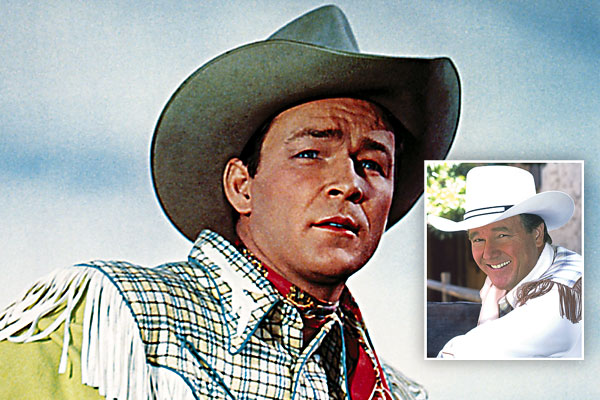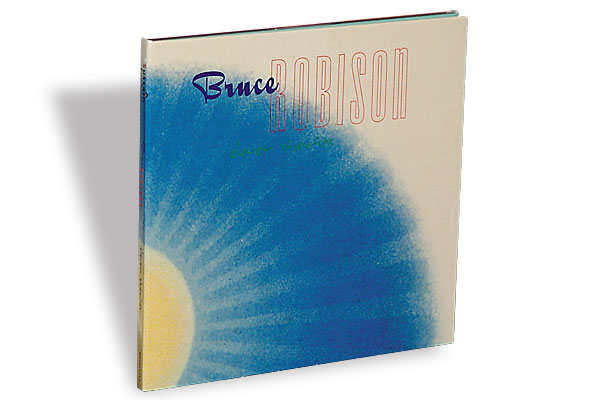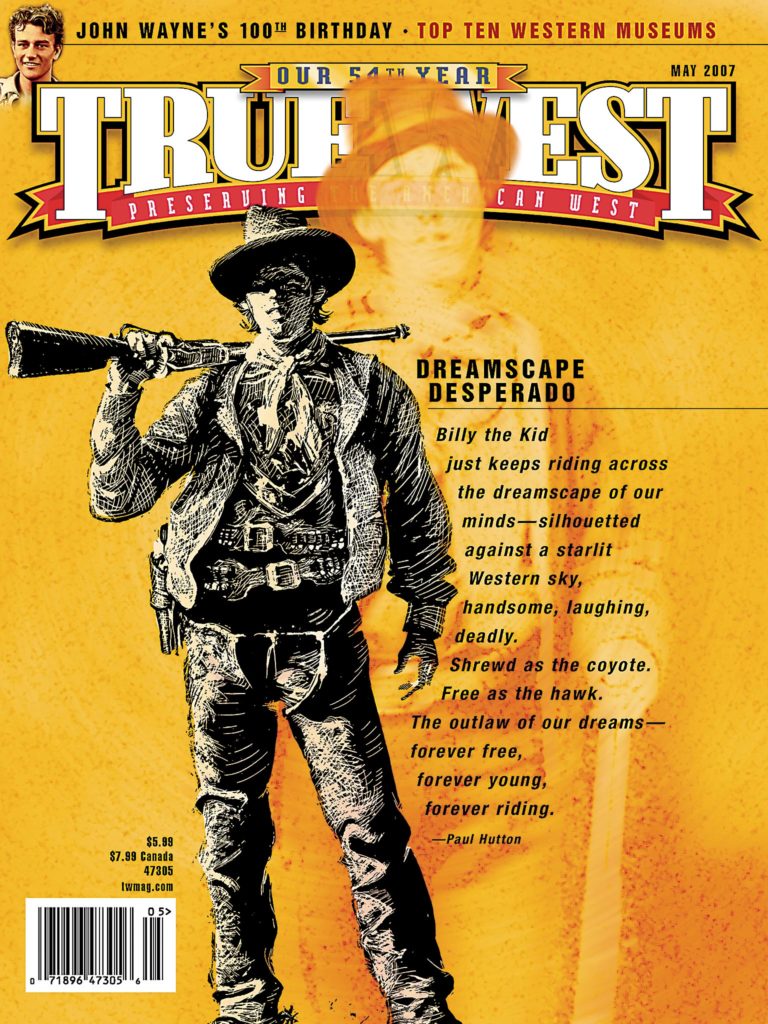 During a recording project in Evergreen, Colorado, several years back, Jon Chandler approached a subject that had captivated him since childhood when he had first looked through the Gunfighter volume of the Time-Life “Old West” series.
During a recording project in Evergreen, Colorado, several years back, Jon Chandler approached a subject that had captivated him since childhood when he had first looked through the Gunfighter volume of the Time-Life “Old West” series.
He came across a photograph of the outlaw Frank James, in his 70s, looking very respectable as he stood in front of the house where he and his brother Jesse had grown up.
Looking at the photo once again, Jon reflected on the inexplicable tendency people sometimes have to mythologize bad guys such as Frank and Jesse James. They had become legendary Robin Hood-type characters to many, somehow transformed by the media from villains into heroes.
As a lifelong history buff, Jon knew well the real story of the James brothers’ notorious Northfield Bank robbery. He knew it to be a contemptible act in which Frank had pistol whipped Joseph Heywood, and then, as the outlaws were leaving, he shot Heywood in the head. Jon wondered how Heywood’s widow would have felt had she been viewing that photograph of Frank, 40 years after the senseless murder of her husband. How would she feel, seeing Frank James standing there, not only a free man but an old man as well? He could almost hear her angry thoughts about the James brothers, “Stop! These men aren’t good guys. They’re the same violent outlaws who killed my husband.” His dark, powerful song, “He Was No Hero,” soon began to write itself.
“A blushing bride just turned 19, I loved Joe Heywood more than anything.”
“What I imagined to be this woman’s bitterness and feelings of hatred really became clear to me,” Jon says. He had written from a woman’s point of view before because he has strong pioneering women in his ancestry, so he knew he wanted to write the song in the first person.
He, too, has ties to Missouri on both sides of his family, a number of whom lived during the reconstruction period after the Civil War. Jon’s great-grandmother’s family lived in Clay County, Missouri, and his father’s folks were from Saint Joseph. They lived at a time when Jesse was just beginning to be perceived as a hero.
“I’ve read enough about Jesse James to know that most of what he was involved in was sugar-coated, and he really wasn’t the world’s nicest guy,” Jon says. He speculates that for those who came through the Civil War, this kind of violent behavior on the part of seemingly intelligent people might have been more common at that time than at any other time in our history.
“Jesse was no hero; He was just a little man with a crooked sneer and a scraggly beard and a pistol in his hand.”
Jon recorded the song in A minor because he feels minor keys carry great power. The primary instrument is a dobro, an acoustic fretless instrument that gives the arrangement an old-timey feel. The dobro is layered over the top of a rhythmic acoustic guitar background. Jon recounts an “ah-ha moment” when he added a Stratocaster to the track to give the song that feeling of a sinister something percolating under the woman’s skin, like a bolt of fire shooting through the overall smoldering sound of the recording. His deep voice adds to the low-key intensity, giving more import to the emotions long seething beneath the surface of the widow’s being.
“The first time I played ‘No Hero’ for people, I got strong, but mixed, reactions,” Jon admits, “so I was pretty sure I had hit on something unique.” The song remains one of Jon’s most requested at live performances.
“If I had a gun, I’d hop a train, head off for Missouri and shoot Frank James.”
“He Was No Hero” was first released on Jon’s Westerns CD in 2000 (True West magazine named this album Best Western CD of 2005). Later, he cut The Best of Jon Chandler, Sepia Soul and included “No Hero” on that collection. Two years ago, he recorded a live album, Jon Chandler and The Wichitones (featuring Butch Hause and Ernie Martinez), which was tracked during the 20th Anniversary of the Elko Poetry Gathering and at the Olde Town Pickin’ Parlor in Arvada, Colorado. Each cover he’s recorded of the song has some variations, but Jon is equally fond of all the versions.
Jon readily admits he has great empathy for the lead character in his song, so much so that he’s working on a novel and a screenplay of it. “After all,” he offers, “a song is just a 200-word novel anyway.” The book will also be called He Was No Hero.
“A woman’s tale, a spinster’s lot, they say time heals, but I never forgot.”





